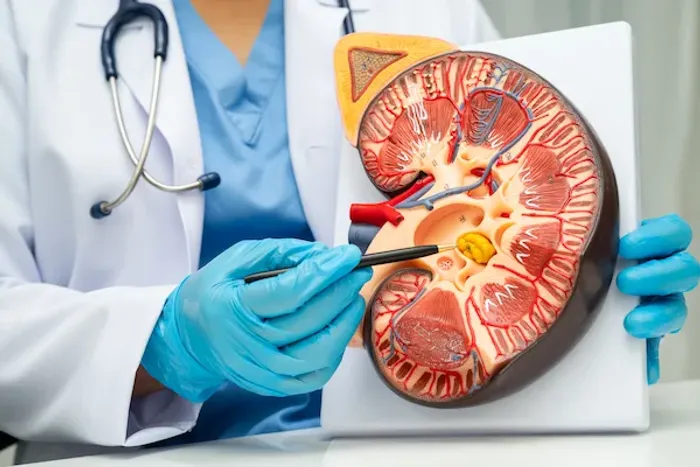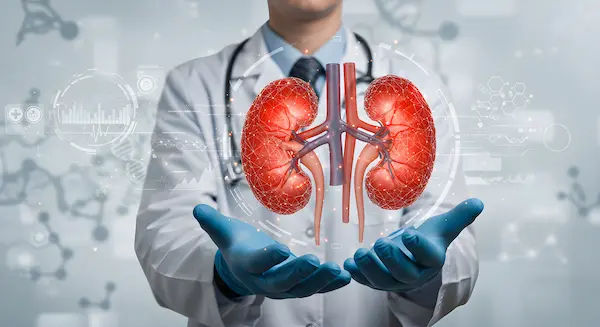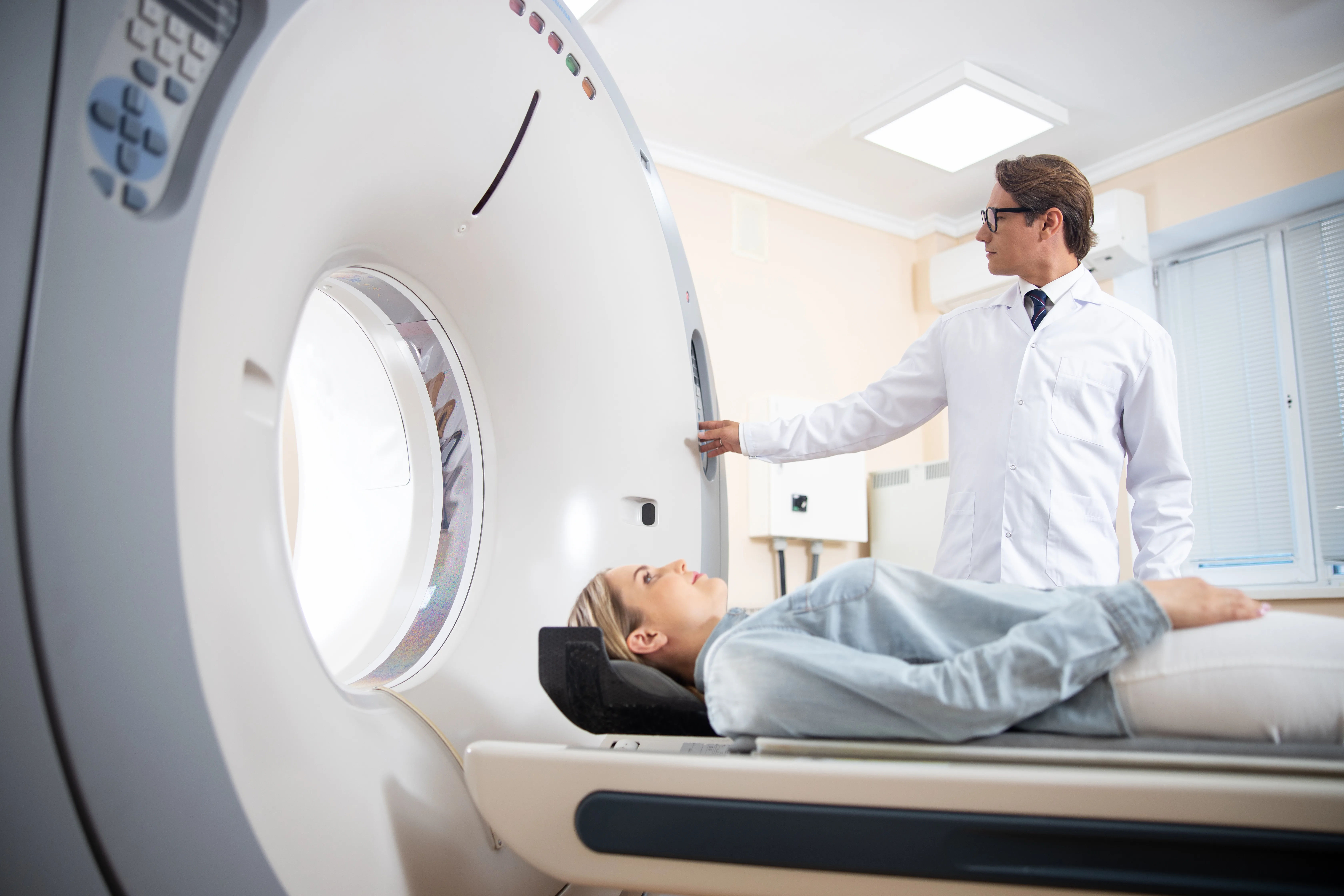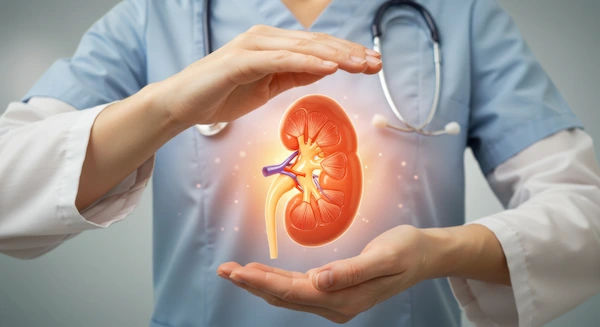Your Essential Guide to Kidney Function Tests
Learn everything about kidney function tests—why they matter, who should get tested, what eGFR, creatinine, BUN, and urine albumin levels mean, and how to keep your kidneys healthy. Understand your results and take proactive steps to prevent kidney disease.

Written by Dr. Vasanthasree Nair
Reviewed by Dr. Dhankecha Mayank Dineshbhai MBBS
Last updated on 5th Sep, 2025

Your kidneys are incredible organs working around the clock to filter your blood and keep your body in balance. But when they start to fail, they often don't make a sound. Kidney disease is known as a "silent" condition because symptoms frequently don't appear until significant, irreversible damage has occurred. This is where kidney function tests become a critical line of defence. This comprehensive guide will walk you through everything you need to know about these tests—from why they matter and what they measure to how to understand your results and take action for your long-term health.
Why Your Kidneys Are Your Body's Silent Superheroes
Before diving into the tests, it's crucial to understand what your kidneys do. Located just below your rib cage on either side of your spine, these two bean-shaped organs are powerhouses of filtration and regulation.
Key Functions of the Kidneys
Think of your kidneys as your body's most sophisticated water filtration plant. Their jobs include:
- Removing Waste: Filtering out toxins and excess waste from your blood to be excreted in urine.
- Balancing Fluids: Regulating the body's water balance to ensure your tissues get the right amount of hydration.
- Regulating Minerals: Managing levels of crucial electrolytes like sodium, potassium, and phosphorus, which are vital for nerve and muscle function.
- Producing Hormones: Releasing hormones that control blood pressure, produce red blood cells, and activate vitamin D for bone health.
How Kidney Disease Starts Silently
The insidious nature of kidney disease is its lack of early warning signs. Because the kidneys have a remarkable reserve capacity, you can lose up to 90% of your kidney function before experiencing severe symptoms like nausea, fatigue, or swelling. This makes proactive testing, especially for those at risk, not just important—it's potentially life-saving.
Who Should Get a Kidney Function Test?
While anyone can benefit from understanding their kidney health, certain groups are at a higher risk and should be screened regularly.
Routine Screening for At-Risk Individuals
The National Kidney Foundation recommends regular testing if you have:
- Diabetes: The leading cause of kidney failure.
- High Blood Pressure (Hypertension): The second leading cause.
- Heart Disease: Cardiovascular health is closely linked to kidney health.
- A Family History of kidney failure.
- Obesity or you are over the age of 60.
Diagnostic Testing for Existing Symptoms
You should also talk to your doctor about a kidney function test if you experience persistent symptoms like:
- Changes in urinary habits (frequency, colour, foaminess)
- Swelling in your hands, feet, or around your eyes
- Unexplained fatigue and trouble concentrating
- Persistent puffiness around your eyes
Decoding the Tests: A Look Inside the Kidney Panel
A kidney function test typically isn't a single test but a panel of blood and urine tests that together provide a complete picture of your renal health.
Serum Creatinine and Estimated GFR (eGFR) - The Gold Standard
This is the cornerstone of kidney function testing.
What is Creatinine?
Creatinine is a waste product generated by the normal wear and tear of your muscles. Healthy kidneys filter it out of your blood and into your urine. If your kidneys aren't working well, creatinine builds up in your bloodstream.
Consult a Specialist for Personalised Advice
What is eGFR and Wwhyis it So Important?
Your doctor uses your serum creatinine level, along with your age, sex, and body size, to calculate your estimated Glomerular Filtration Rate (eGFR). This is the best measure of how well your kidneys are filtering blood. A normal eGFR is 90 or above. An eGFR below 60 for three months or more indicates chronic kidney disease.
Blood Urea Nitrogen (BUN) - The Waste Product Measure
Urea nitrogen is another waste product, formed from the breakdown of protein in the foods you eat. While BUN levels can indicate kidney issues, they can also be elevated by dehydration, a high-protein diet, or other factors, so they're always interpreted alongside the eGFR.
Urine Tests: The Albumin-to-Creatinine Ratio (UACR)
This test checks for a protein called albumin in your urine.
What is Albuminuria?
Healthy kidneys keep important proteins in your blood. When the kidneys' filters are damaged, they can leak albumin into the urine—a condition called albuminuria or proteinuria. This is one of the earliest signs of kidney damage, especially in people with diabetes.
How to Collect a Sample for a Urine Test
This is typically a simple, non-invasive "clean catch" mid-stream urine sample provided in a cup at your doctor's office or a lab.
Understanding Your Kidney Test Results: A Breakdown
Receiving your results can be confusing. Here’s a simplified guide to what the numbers mean.
What Do High Creatinine and Low eGFR Mean?
High creatinine levels and a low eGFR directly suggest that your kidneys are not filtering waste from your blood effectively. The stage of chronic kidney disease (CKD) is based on your eGFR number, guiding treatment and next steps.
The Significance of Protein in Urine
Even a small amount of albumin in your urine (microalbuminuria) is a significant red flag for early kidney damage. It's a powerful predictor of the future progression of kidney disease and cardiovascular problems.
What to Expect During and After Your Test
The process is straightforward and low-risk.
The Blood Draw Process: A phlebotomist will clean a spot on your arm, insert a small needle to draw blood into a vial. You may feel a quick prick. The entire process takes just a few minutes.
The Urine Sample Process: You’ll be given a cup and instructions to provide a mid-stream sample to avoid contamination.
Are There Any Risks or Side Effects? The risks are minimal—slight bruising or tenderness at the blood draw site. The tests themselves are very safe.
Next Steps After an Abnormal Test Result
An abnormal result is not a diagnosis but a signal for further investigation.
- Working with Your Doctor: Your primary care physician will discuss your results, often repeating the tests to confirm the findings. They will look for underlying causes, like uncontrolled diabetes or hypertension.
- Further Diagnostic Tests: If needed, your doctor may refer you to a kidney specialist (nephrologist). They might order a renal ultrasound to get images of your kidneys or, in rare cases, a kidney biopsy to examine a tiny piece of kidney tissue.
How to Keep Your Kidneys Healthy
Proactive health is the best medicine. You can support your kidney function by:
- Managing blood sugar and blood pressure.
- Eating a balanced, low-sodium diet rich in fruits and vegetables.
- Staying well-hydrated with water.
- Exercising regularly.
- Avoiding excessive use of NSAIDs (like ibuprofen and naproxen).
- Not smoking and limiting alcohol.
Conclusion
Understanding your kidney function test results is a powerful step in taking control of your health. These tests provide a vital window into the silent work your kidneys perform every day. By getting screened, especially if you are in an at-risk group, you can catch potential problems early when they are most treatable. Remember, knowledge is power. Discuss kidney testing with your doctor, understand your numbers, and take proactive steps to protect these vital organs for years to come. Your first action? If you have risk factors, schedule an appointment with your healthcare provider to discuss getting tested.
Consult a Specialist for Personalised Advice
Consult a Specialist for Personalised Advice

Dr. Md Yusuf Shareef
General Practitioner
8 Years • MBBS
Hyderabad
Apollo 24|7 Clinic, Hyderabad

Dr. M L Ezhilarasan
General Practitioner
6 Years • MBBS
Visakhapatnam
Apollo 24|7 Clinic - Andhra Pradesh, Visakhapatnam

Dr. Shaik Abdul Kalam
General Practitioner
3 Years • MD (Physician)
Visakhapatnam
Apollo 24|7 Clinic - Andhra Pradesh, Visakhapatnam
(175+ Patients)

Dr. Rajib Ghose
General Physician/ Internal Medicine Specialist
25 Years • MBBS
East Midnapore
VIVEKANANDA SEBA SADAN, East Midnapore

Dr. Ashita Kuruvilla
General Physician/ Internal Medicine Specialist
7 Years • MBBS
East Midnapore
VIVEKANANDA SEBA SADAN, East Midnapore
Consult a Specialist for Personalised Advice

Dr. Md Yusuf Shareef
General Practitioner
8 Years • MBBS
Hyderabad
Apollo 24|7 Clinic, Hyderabad

Dr. M L Ezhilarasan
General Practitioner
6 Years • MBBS
Visakhapatnam
Apollo 24|7 Clinic - Andhra Pradesh, Visakhapatnam

Dr. Shaik Abdul Kalam
General Practitioner
3 Years • MD (Physician)
Visakhapatnam
Apollo 24|7 Clinic - Andhra Pradesh, Visakhapatnam
(175+ Patients)

Dr. Rajib Ghose
General Physician/ Internal Medicine Specialist
25 Years • MBBS
East Midnapore
VIVEKANANDA SEBA SADAN, East Midnapore

Dr. Ashita Kuruvilla
General Physician/ Internal Medicine Specialist
7 Years • MBBS
East Midnapore
VIVEKANANDA SEBA SADAN, East Midnapore
Frequently Asked Questions
Can I test my kidney function at home?
there are now FDA-approved at-home test kits that measure creatinine and eGFR from a finger-prick blood sample and albumin from a urine sample. However, these should complement, not replace, regular care from your doctor.
What is a dangerous level of creatinine?
There's no single 'dangerous' level for everyone, as it depends on age, muscle mass, and other factors. However, a creatinine level above 1.3 for women or 1.4 for men is generally considered elevated and warrants a doctor's investigation.
What are the symptoms of stage 1 kidney disease?
Stage 1 kidney disease often has no visible symptoms. It is typically identified only by tests showing a normal eGFR (90+) but signs of kidney damage, such as persistent protein in the urine (albuminuria).
How often should you get a kidney function test?
If you have no risk factors, it may not be needed routinely. If you have diabetes, hypertension, or other risk factors, your doctor will likely recommend testing at least once a year.
Can drinking water before a blood test improve kidney function results?
Drinking water can slightly lower your BUN level by improving blood flow to the kidneys, but it will not significantly alter your creatinine or eGFR, which are the most important markers. It's always best to follow your doctor's specific instructions for the test.




